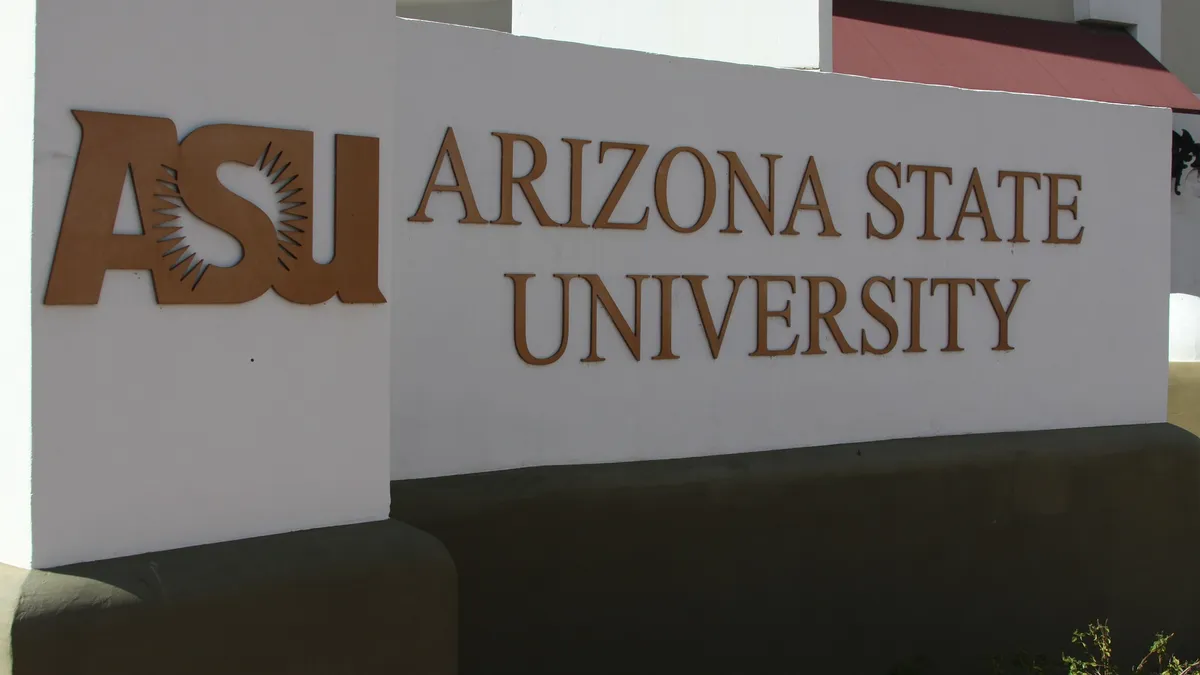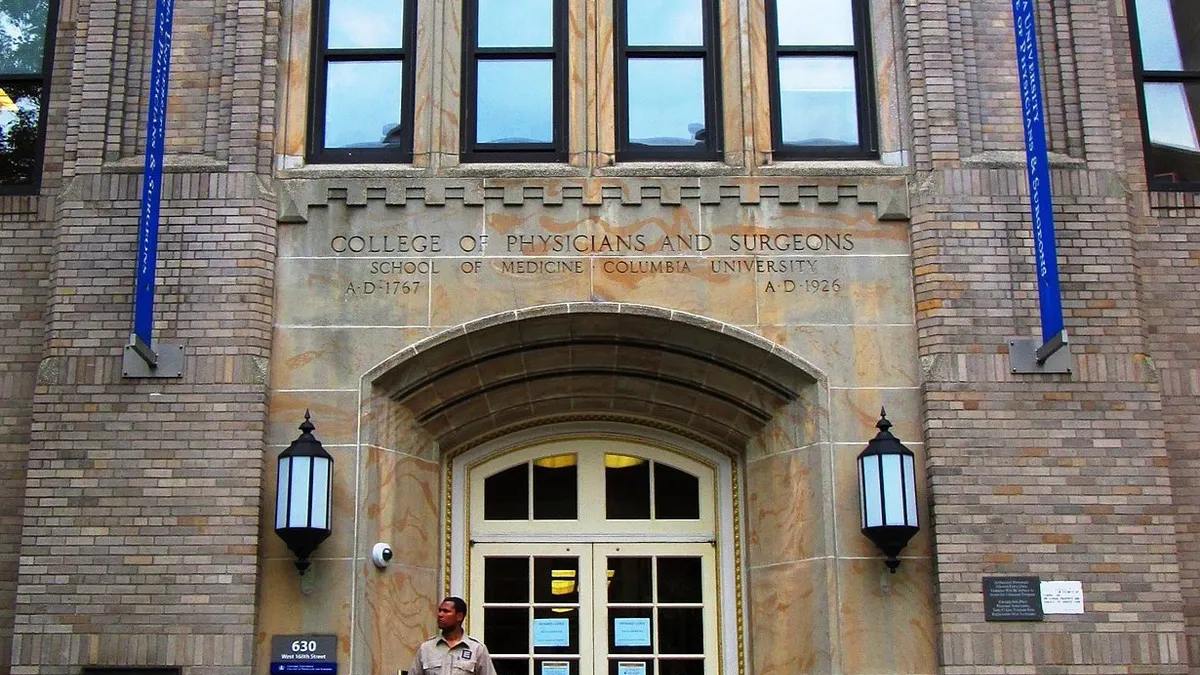It's been five years since Arizona State University first partnered with Starbucks to provide tuition-free higher education to the coffee seller's eligible employees. To date the initiative, which subsidizes 100% of employees' tuition for dozens of degree programs, has enrolled 18,000 workers and graduated around 2,400.
Both the revenue and the challenges involved in forging a large-scale partnership with Starbucks and other major corporations was apparently enough to spawn a new venture, one that is tied to Arizona State and focused on building out partnerships with more employers.
The new public benefit corporation, called InStride, went live earlier this month, timed with the beginning of the annual ASU GSV Summit, a celebration of education's intersection with commerce and technology. The Chronicle of Higher Education, which first broke the news of the for-profit entity, reported that Arizona State owns a minority stake in the venture, with the $2.1 billion Rise Fund, a private equity fund managed by TPG, as the majority owner.
In a press release announcing its launch, InStride described itself as a "learning services enterprise" that intends to "achieve significant social impact" by partnering with companies that want to help their employees get a college education. It also credited Arizona State's existing partnerships, such as that with Starbucks, as being "the catalyst for the new company." The Starbucks deal, however, drew some criticism for offering less flexibility than a previous college-reimbursement program at the chain.
More partnerships with other employers, as well as with universities beyond Arizona State, are expected. The premise of the new company is partly that working closely with employers, especially corporations, requires a specific set of skills that itself demands a dedicated organization. InStride will share revenue with Arizona State from employee enrollment in educational programs.
'A paradoxical moment'
The backdrop to InStride's launch is growing competition among colleges and universities for working adults, who are often drawn to online programs for their convenience and flexibility. The demographic is one that for decades many colleges could afford to more or less ignore, as new crops of high school graduates filled their freshman classes. But declines in high school graduates, among other shifts, have created financial uncertainty for institutions.
"We're at a paradoxical moment when we read weekly in the press about another college or university closing at the same time that people everywhere need to refresh their skills throughout their entire careers, more than ever in the history of humanity," said Michael Feldstein, partner at education consulting firm MindWires and copublisher of the blog e-Literate.
"Theoretically there should be enough demand to sustain all these institutions," he added. But financial constraints and recruiting costs present obstacles. "Arizona State is trying to innovate in that area, and that's a good thing. Whether their approach turns out to be a good solution remains to be seen, but we definitely need more attention to that part of the problem."
Deals with large employers, meanwhile, open access to new students and can provide some revenue stability and cost savings on recruitment. That could partly explain why Arizona State teamed up with Starbucks and developed similar relationships with Uber and the NBA, and why Purdue University Global partnered with Papa John's recently to deliver tuition-free college to its corporate employees.
To help navigate the relationship between universities and corporations, InStride brought in executives with deep private sector experience, including in ed tech and higher ed consulting.
Its CEO and founder, Vivek Sharma, previously spent six years at Disney as an executive overseeing the entertainment giant's e-commerce arm and digital experience, and before that worked at Yahoo. Josh Jarrett, chief university officer and co-founder, came from hiring analytics firm Koru, and earlier founded the higher ed program at the Bill & Melinda Gates Foundation. InStride has also hired executives out of Cengage and Quantum Thinking.
Costs and capabilities
Even before InStride was officially announced, some questioned its reason for being. Writing for Inside Higher Ed, Kenneth C. Green, founding director of The Campus Computing Project, raised several questions: Why an Arizona State co-venture would bring other universities into the project. Why the university was not the controlling partner in a deal that relies heavily on its resources. And whether the venture would prioritize social impact over profit.
Necessity could be a partial answer. Feldstein noted that colleges are typically focused on recruiting out of high schools, which they get "a lot of free help" doing from guidance counselors. As a result, many don't have the capabilities to attract, enroll and support working adults.
"If we want to see those students educated for their own sake and want to see universities continue their mission and stay alive to be able to reach the students who are demographically the ones who need them, then we need to find new support structures — and those support structures come at a cost," he said. "Most universities don't know what those costs are and don't have the competencies to reach those students cost effectively. That's a logical (role) for a third-party partner that may be a for-profit venture."
But Feldstein also noted that, "theoretically," an institution with Arizona State's size and resources should be able to develop that ability internally or with a third party that "doesn’t necessarily own the capability as a separate for-profit venture."
Showing employers value
Other institutions are building out similar capabilities in-house. Shortly before InStride formally announced itself to the world, the nonprofit National University System (NUS) said it was launching a workforce development unit. Its focus is largely on working with industries such as banking, health care and K-12 education to remove barriers to higher ed for their employees and to help to fill the recruiting pipeline.
It will start with a staff of about 20 employees — comparable to InStride's head count, which is growing — with many focused on outreach to community and industry partners, Chris Graham, the unit's president, told Education Dive earlier this month.
Creating a dedicated unit, he said, addressed "a lack of focus" on outreach as well as a desire to help address employers' needs by "connecting the dots" among career services, academic units and other roles within the system.
"Whether their approach turns out to be a good solution remains to be seen, but we definitely need more attention to that part of the problem."

Michael Feldstein
Partner, MindWires
Like Arizona State and others, NUS — which runs National University, City University of Seattle, John F. Kennedy University and Northcentral University — also offers deals for organizations. In NUS' case, that comes in the form of a "scholarship" rate typically around 15%. The discount is offset by the savings NUS achieves in marketing and recruitment costs by reaching a large group of prospective students through a single source, Graham said.
He acknowledged that NUS essentially competes with Arizona State, Purdue Global and others when it comes to providing education as a corporate benefit.
"What will set universities apart is the level of customization and the level of true workforce development that goes on," he said. "If you can help an organization to really thoughtfully upskill its employees, if you can articulate training and organizational learnings into degree-bearing credit, and if you can work with them on helping them build up their hiring pipeline, you're going to show value."




















